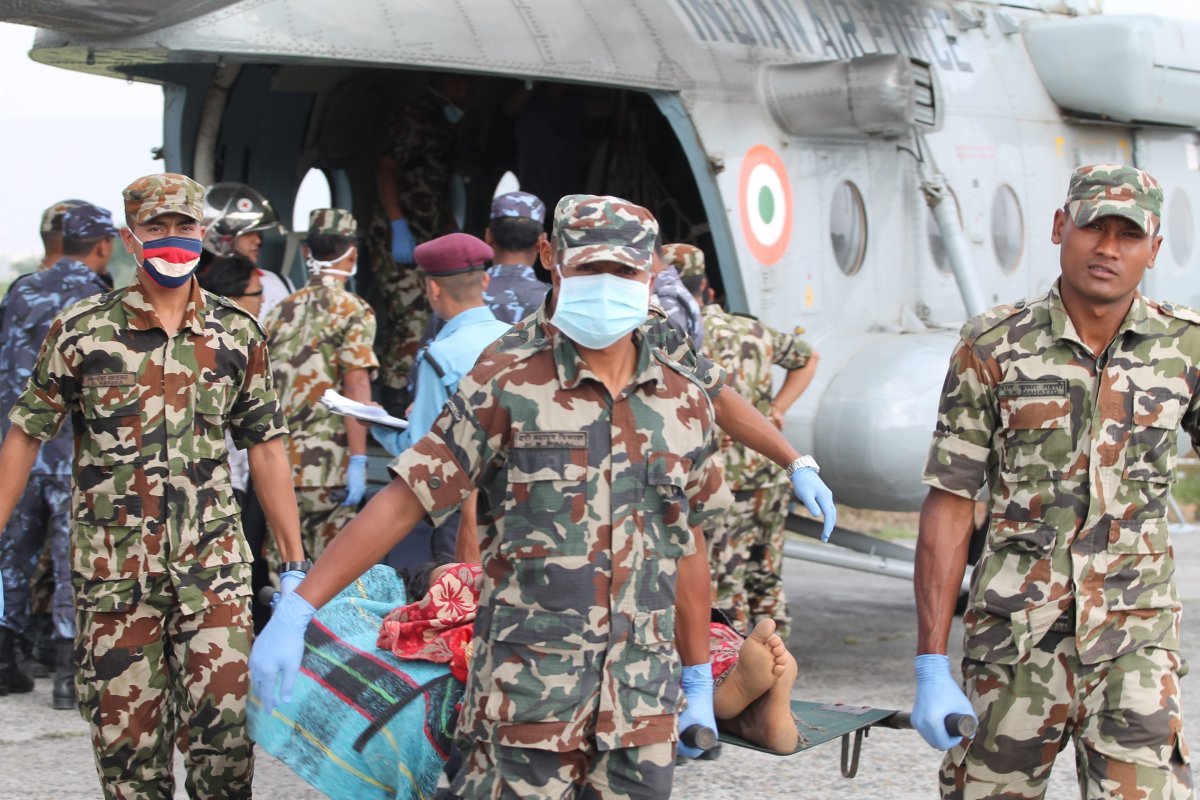Just days after an exclusive Global News report on a Canadian doctor who was frustrated with the lack of supplies and aid delivered by United Nations troops on the ground in Nepal, the UN food agency says it’s stepping up it’s delivery of supplies to inaccessible villages across the earthquake-stricken country.

The international organization says it’s hiring thousands of mountain and trekking guides, porters and other workers to carry food, medicine, tents and supplies to Nepal’s mostly inaccessible northern villages where two powerful earthquakes destroyed houses.
Richard Regan of the UN’s World Food Program said the workers would also repair the trails destroyed by the April 25 and May 12 earthquakes. How many are hired will depend on need.
WATCH: Second Canadian medical assistance team heads to Nepal
Dr. Dybesh Regmi travelled to remote villages in Nepal earlier this month with a medical team and set up a camp in the village and began treating patients, administering vaccines and distributing food, soap and sanitation equipment.
But he told Global News last Thursday that more could be done by UN forces on the ground in remote villages to deliver aid directly to earthquake victims.
“To much of my frustration they came there and they noted what they were there to note, which is what the accessibility was like and perhaps how many people died and so forth, but they really didn’t bring anything with them,” he said.
“There was no relief supplies that came in this vehicle, and I really didn’t quite understand the point of being able to access an area that is so inaccessible and yet not being able to take anything with you while you have the vehicle to do so.”
READ MORE: UN official says earthquake-hit Nepal needs to enforce building laws
Regmi said that if the UN could make it into these villages, they should have been able to deliver supplies as well.
“But just to show up there with a pen and a paper doesn’t really make a difference in the short term. I mean if you’re going to write a report and go back and say ‘okay, we’ve got accessibility here’ by the time that report is out or whatever it is, there’s people that possibly could die and I think one should always put that in the back of their mind,” he said.
“I think that oversight is not acceptable in these type of situations where you show up with something and there’s really nothing there to offer the local people while they storm to the vehicle expecting there to be something.”
A spokeswoman for UN Secretary-General Ban-Ki moon said that the organization has been doing its best to reach remote, inaccessible areas on a daily basis, but wouldn’t characterize it as saying that aid was not being delivered.
“We need to carry out these assessments to kind of know where the gaps are and I’m sure once this assessment team got there and said ‘oh my goodness, this area’s been hard hit’ they immediately relayed that to the relevant agency,” said Eri Kaneko, Associate Spokesperson for the Secretary-General.
“An assessment team, unfortunately, its function is to carry out assessments so it would be great if it could carry everything in the world but unfortunately I think we’ve done our best. I think we’ve done a pretty good job of trying to get in what we can and obviously that continues.”
READ MORE: UN calls for urgent aid for Nepal after devastating earthquakes
Regmi said he has plans to return to the region in the coming months to continue to provide aid, shelter and medical treatment to earthquake victims, three areas that he said are of great hindrance to the recovery efforts for the country as monsoon season approaches next month.
An estimated 100,000 people in Nepal’s northern mountains still have not received any help after the earthquake.
Nepal’s spring mountain climbing season was ended early by the April earthquake, and people who normally guide foreign trekkers and climbers and carry their equipment were left out of work.
The two earthquakes damaged and destroyed thousands of buildings and killed 8,676 people in Nepal.
-With files from The Associated Press



Comments